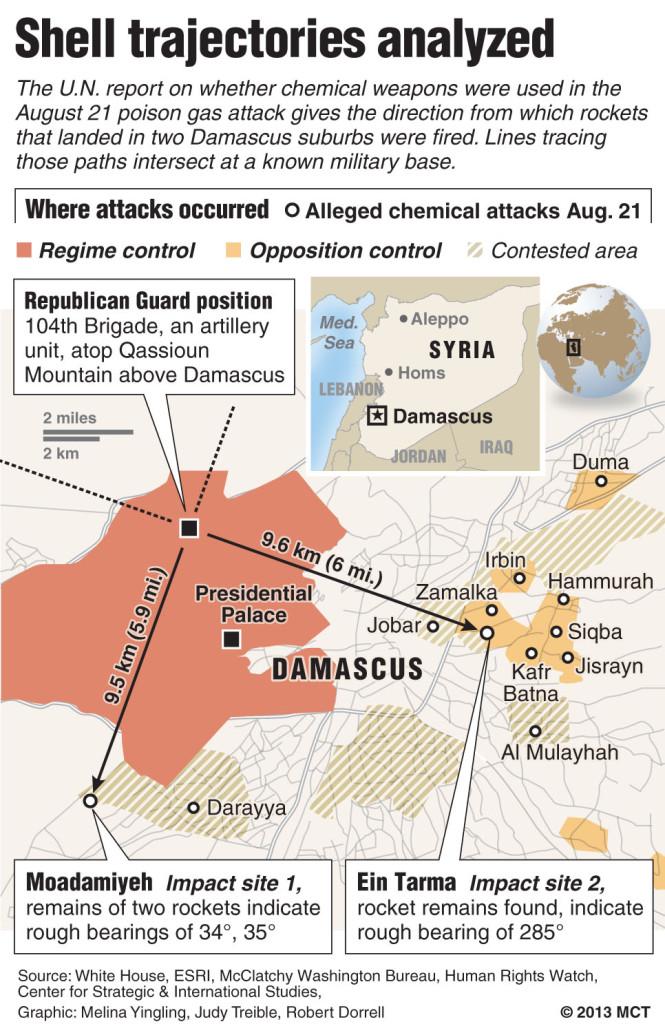To Strike, or Not to Strike?
Perspective on the Conflict in Syria
After two weeks of discussions with international leaders, meetings with members of Congress, and much deliberation, President Barack Obama announced Tuesday, September 10th, that military action would still be considered to punish the Assad regime’s use of chemical weapons against innocent civilians. While supporting the notion that military intervention in Syria is in the nation’s best interest, Mr. Obama has asked that Congress postpone use of force, while he works with the nation’s allies to put forth a diplomatic resolution to minimize Assad’s use of chemical weapons.Taking a rather moral stance on the entire matter, President Obama successfully managed to provide the nation with images of the gruesome attack on August 21st and even suggested his audience to watch it, to experience it, to understand the injustice that was posed on so many innocent civilians. By emphasizing both this moral stance and the Assad regime’s threat to our nation’s national security, President Obama was able to justify his position. He asked the American people, “What kind of world will we live in if the United States of America sees a dictator brazenly violate international law with poison gas and we choose to look the other way?”
While the country’s people remain critical of U.S. intervention in Syria, however, many are still extremely worried about the grave consequences military action may have. In the U.S, mere elementary school children have only lived to be a part of a world fraught with war and danger – is this cycle going to continue with the nation’s involvement in Syria?
As civilians of the world, it is only our duty to ask questions, stay informed, form opinions, demonstrate interest, and share a voice regarding the conflict in Syria. In such an age of revolution, we cannot expect anything less from ourselves.
As Barack Obama presented an eloquent speech arguing for both war and diplomacy in the same speech, one should comprehend the broad implications of each. While, of course, a lack of involvement can prevent war, what are the consequences of not acting against the Assad regime? To begin, complete isolation from the Syria conflict will only encourage other dictatorships to do the same – to acquire chemical weapons, to demonstrate violence, to act against their own people. Like President Obama mentioned, “If [the nation] fail[s] to act, the Assad regime will see no reason to stop using chemical weapons. Over time [the country’s] troops would again face the prospect of chemical warfare on the battlefield.” The notion of using military force on Syria, however, remains to be met with little support by both Congress and the American public.
In response to the nation’s concerns, Obama made it clear that the nation will not be placing its troops in Syria, nor will it be taking out Assad. The main objective of this targeted strike, as the President stated, was to “[deter] the use of chemical weapons and degrading Assad’s capabilities.” As a potential part of his strategy, he also claims that “a limited strike will send a message to Assad that no other nation can deliver.
With Tuesday’s Presidential Address in mind, it is clearly that President Barack Obama is looking to form a diplomatic solution. Rather than submitting to any sort of military action in Syria immediately, the nation and its allies will exhaust any possible remedies to seek a potential resolution to the Syrian chemical weapons conflict.

As a senior this year, Sitara Soundararajan is entering her fourth year as a writer for the Banner. She is looking forward to serving as the Opinion...


